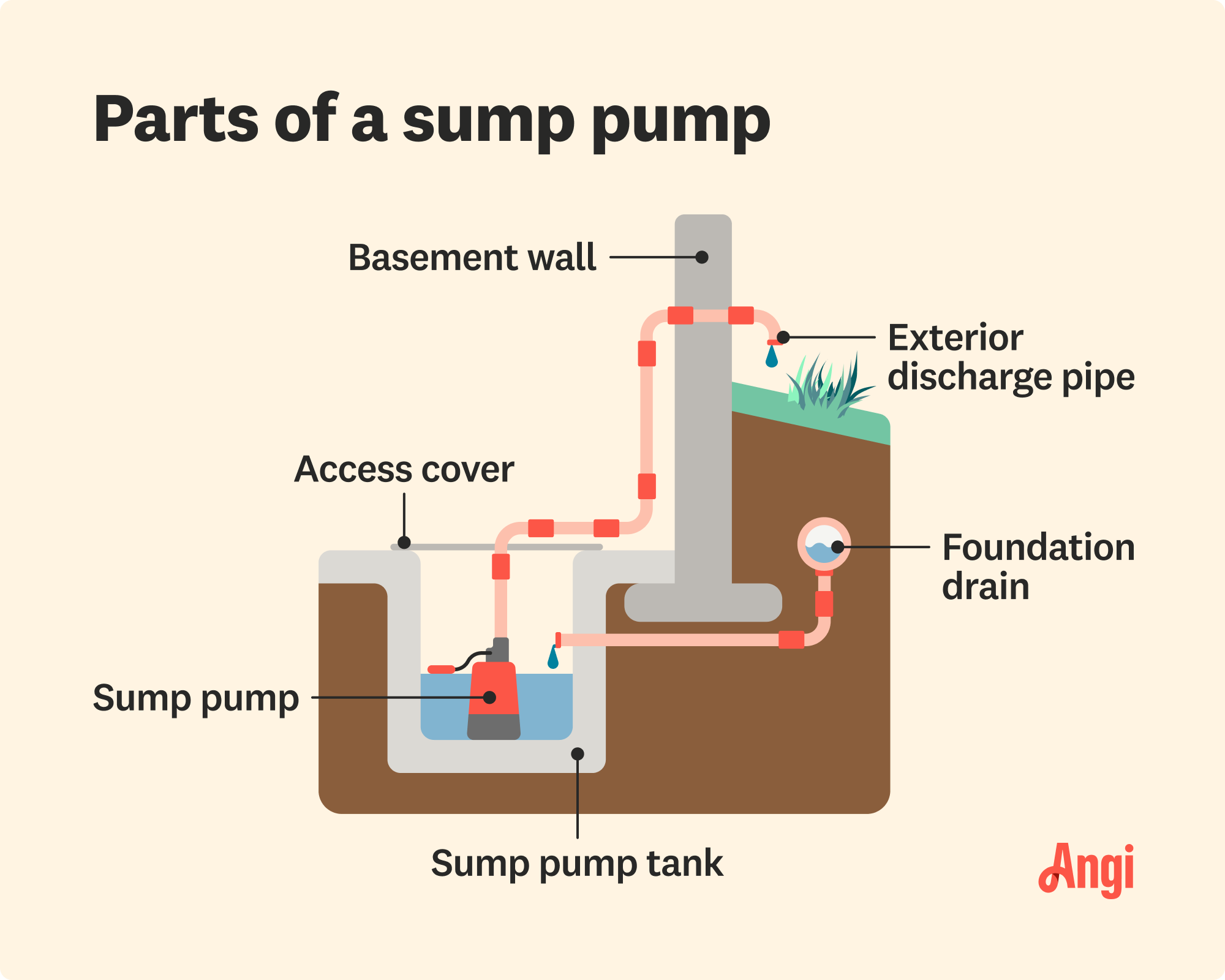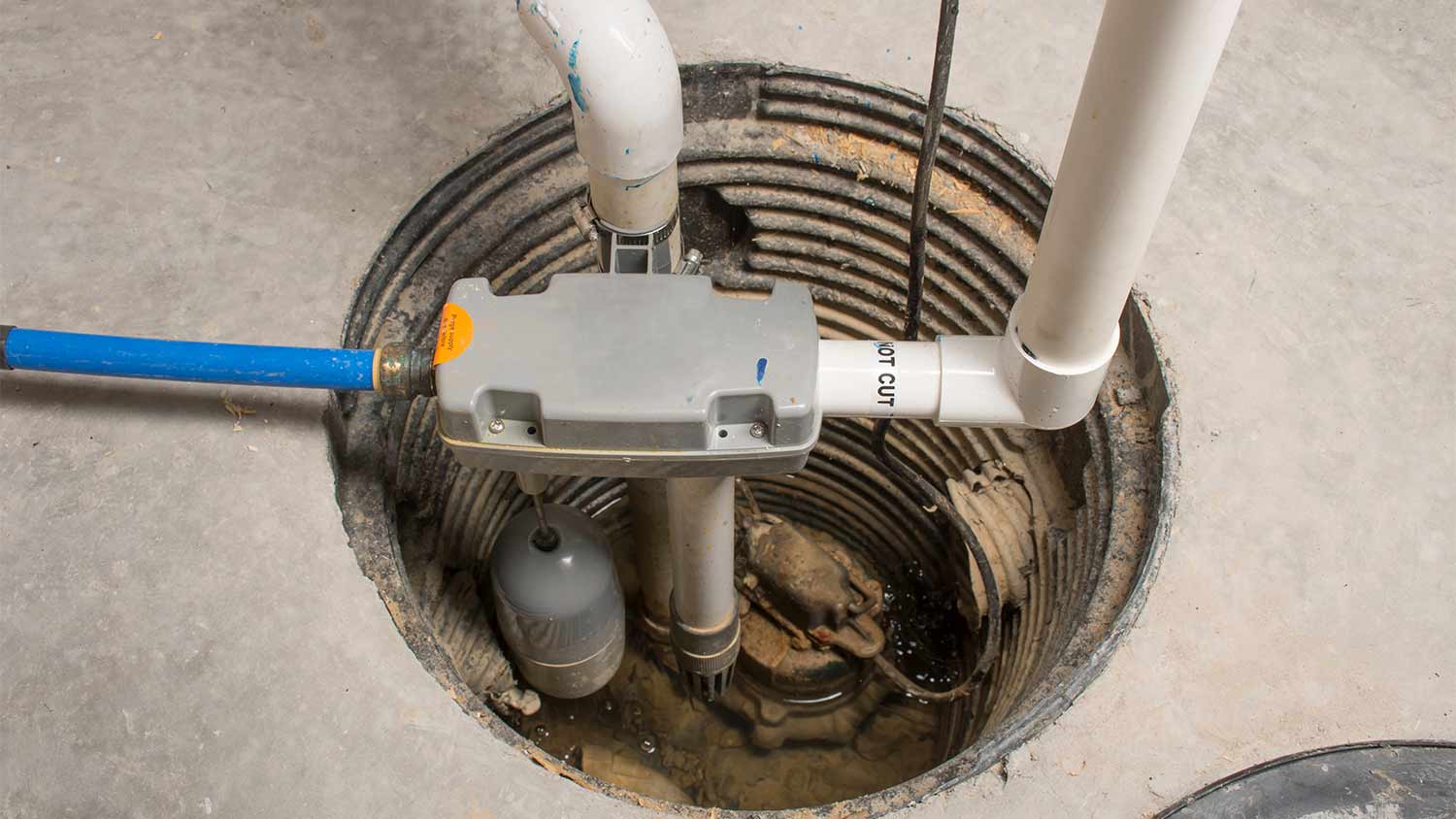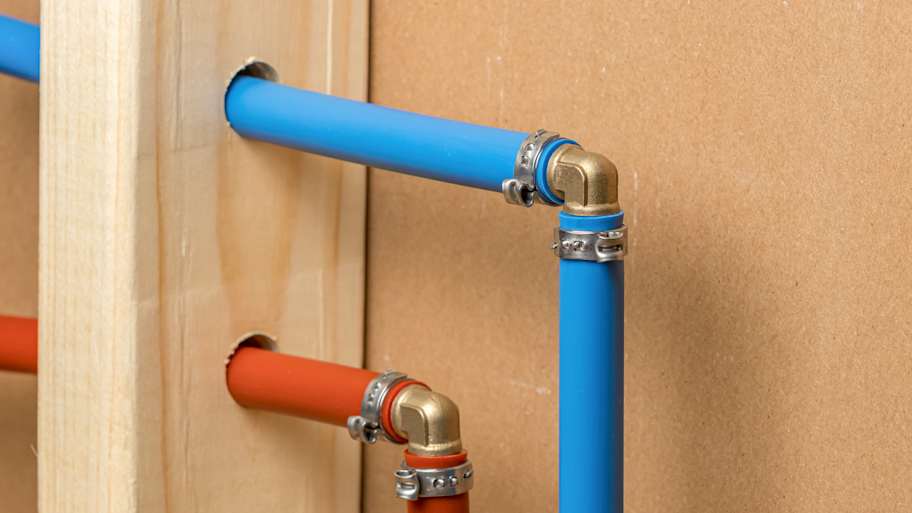
The cost to cap a gas line is relatively low, as plumbers can handle the job in roughly an hour. We break down cost factors and DIY considerations.
Swap your sump pump every decade to defend against flood damage


Sump pumps are your final line of flood protection. They are often used in stone basements and designed to let water in or older basements with a history of leakage or flooding. You might also find a sump pump in your crawl space. However, like all other appliances, sump pumps fail after a certain period, and nothing screams more trouble than a failing sump pump when you need it to save the day.
On average, a sump pump should be replaced every 7 to 10 years with good maintenance. If you’ve never realized there is a sump pump in your basement, chances are it was never properly maintained. In that case, you should hire a professional to inspect the pump so you’re not caught unprepared with standing water in the basement.

Your sump pump relies on a simple mechanism where a float triggers the motor when the water level is too high. Then, the device begins pumping the water out. A few key factors determine how long your sump pump might last:
Frequency: The more frequently you run the pump, the more wear and tear it gets and the shorter it will last.
Capacity: Sump pumps come in different horsepowers. If you have a smaller, one-third-horsepower pump designed for low or moderate flooding but live in an area with high water volume, you will wear your pump out prematurely.
Cleaning and maintenance: Cleaning and regular maintenance are key. Poorly maintained pumps tend to be short-living.

Many never realize their sump pump is malfunctioning until standing water is in the basement. Next thing you know, you’re spending a fortune on an emergency plumber and a water restoration company.
That’s why you should always look for signs that your sump pump might be dying. Some common signs include:
Visible rust and corrosion: Corrosion and rust around the base, motor, or float are telltale signs that your pump is either undermaintained or too old. These buildups can affect your pump’s normal functionality, clog the motor or float, and eventually cause it to not engage.
Running nonstop: If your pump runs several minutes at a time, it’s either underpowered for the water volume it’s expected to handle or too far from the flooding area, which forces the pump to run excessively to do its job. Make sure your pump has the correct water per hour (GPH) for your needs and is close enough to the flooding zone.
Cycling on and off: Short cycles of on and off are another sign that your pump is dealing with more water than it’s meant to handle. This will eventually burn out the motor, significantly reducing your sump pump’s life span.
Weird noises: If you hear anything other than a low hum from your sump pump, something is not right. Strange noises in sump pumps are usually caused by faulty mechanics, such as a jammed impeller or failed motor bailing.
Excessive vibration: Sump pumps vibrate moderately during normal operation. But if it’s visibly shaking, that might indicate jammed parts or improper installation. Left unattended, the vibration can lead to worse mechanical problems and eventually render the pump inoperable.
Proper maintenance is the most important step if you are hoping to increase the life span of a sump pump. While it’s best to hire a pro for sump pump maintenance, there are a few things you can do at home to keep your pump in good shape, including keeping the pump upright and avoiding debris from gathering around the pump.
Inspect your sump pump every three to four months. A contractor will check the pump’s physical condition along with Ground Fault Circuit Interrupter (GFCI) checks.
Most problems with sump pumps are caused by the same reasons: lack of maintenance, rust buildup, corrosion, and overworking. While sump pump repair is a job for the pros, there are useful troubleshooting tips you can follow to give yourself a better idea of what’s going on before reaching out to a contractor.
Several reasons can cause your sump pump not to engage or turn on when it’s supposed to. Begin by checking the lid. If the fitting lid is loose, debris and dirt will clog the pump. If that’s the case, pick up an airtight fitting lid, and you can replace it yourself. You should also hire a plumber to thoroughly clean the sump pump if you suspect it might have been jammed. Otherwise, replacing the lid won’t undo the buildups that have already cumulated.
A sump pump tripping the breaker is an electric issue. Check your fuse and circuit breaker and make sure they’re the correct size. If your pump sump draws too much energy, it can blow a fuse or trip the breaker. Most sump pumps require an electric circuit capacity that is 15 amps or higher.
A new sump pump usually comes with a manufacturer’s warranty covering one to three years after purchase. Once that expires, your home warranty policy typically covers sump pump repair and replacement. However, since home warranty policies can vary drastically between carriers and plans, it’s best to check with your provider to ensure your pump is fully covered.
A new sump pump costs $308 to $748 on average. Minor issues such as buildup cleaning and a loose lid are easily repairable. Generally speaking, if your sump pump is still covered by the manufacturer’s warranty or is less than five years old, repair might be a wiser option.
However, if your sump pump has a severe mechanical problem or is nearing the end of its life span, replacing it completely will save you money in the long run. If your sump pump doesn’t have enough capacity to handle the rainfall, you will also want to replace the basin with a higher horsepower model.
From average costs to expert advice, get all the answers you need to get your job done.

The cost to cap a gas line is relatively low, as plumbers can handle the job in roughly an hour. We break down cost factors and DIY considerations.

Wondering how much it costs to reroute plumbing? We have the information you need to learn about plumbing vent pipes and cost considerations when installing them.

Everyone can relate to having toilet issues—we’ve all been there. There are several reasons why your toilet might need repairs, and the cost varies based on the damage.

What is an anti-siphon valve? Our guide covers what it is, how to install one, and more tips to ensure that your drinking water stays fresh and protected.

Having the right size PEX pipe is a must for your plumbing project. Learn about PEX pipe sizes and dimensions so you can choose the right one for your project.

We’ll show you how to keep pipes from freezing in the winter and how to thaw yours before they burst.